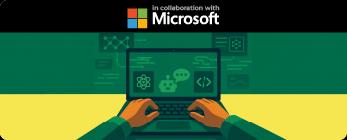For working professionals
Domains
Doctorate
Artificial Intelligence
MBA
Data Science
Marketing
Management
Education
Law
Gen AI & Agentic AI
Doctorate
For All Domains
IIITB & IIM, Udaipur
Chief Technology and AI Officer ProgramSwiss School of Business and Management
Executive Doctor of Business Administration from SSBMEdgewood University
Doctorate in Business Administration by Edgewood UniversityGolden Gate University
Doctor of Business Administration From Golden Gate UniversityRushford Business School
Doctor of Business Administration from Rushford Business School, SwitzerlandGolden Gate University
MBA to DBA PathwayLeadership / AI
Golden Gate University
DBA in Emerging Technologies with Concentration in Generative AIGolden Gate University
DBA in Digital Leadership from Golden Gate University, San FranciscoArtificial Intelligence
Degree / Exec. PG
IIIT Bangalore
Executive Diploma in Machine Learning and AIOPJ Global University
Master’s Degree in Artificial Intelligence and Data ScienceLiverpool John Moores University
Master of Science in Machine Learning & AIGolden Gate University
DBA in Emerging Technologies with Concentration in Generative AIExecutive Certificate
IIITB & IIM, Udaipur
Chief Technology and AI Officer ProgramIIIT Bangalore
Executive Programme in Generative AI for LeadersupGrad | Microsoft
Gen AI Foundations Certificate Program from MicrosoftupGrad | Microsoft
Gen AI Mastery Certificate for Data AnalysisupGrad | Microsoft
Gen AI Mastery Certificate for Software DevelopmentupGrad | Microsoft
Gen AI Mastery Certificate for Managerial ExcellenceOffline Bootcamps
upGrad
Data Science and AI-MLMasters

Paris School of Business
Master of Science in Business Management and TechnologyO.P.Jindal Global University
MBA (with Career Acceleration Program by upGrad)Edgewood University
MBA from Edgewood UniversityO.P.Jindal Global University
MBA from O.P.Jindal Global UniversityGolden Gate University
MBA to DBA PathwayExecutive Certificate
IMT, Ghaziabad
Advanced General Management ProgramData Science
Degree / Exec. PG
O.P Jindal Global University
Master’s Degree in Artificial Intelligence and Data ScienceIIIT Bangalore
Executive Diploma in Data Science & AILiverpool John Moores University
Master of Science in Data ScienceExecutive Certificate
upGrad | Microsoft
Gen AI Foundations Certificate Program from MicrosoftupGrad | Microsoft
Gen AI Mastery Certificate for Data AnalysisupGrad | Microsoft
Gen AI Mastery Certificate for Software DevelopmentupGrad | Microsoft
Gen AI Mastery Certificate for Managerial ExcellenceupGrad | Microsoft
Gen AI Mastery Certificate for Content CreationOffline Bootcamps
upGrad
Data Science and AI-MLMarketing
Executive Certificate
upGrad | Microsoft
Gen AI Foundations Certificate Program from MicrosoftupGrad | Microsoft
Gen AI Mastery Certificate for Content CreationOffline Bootcamps
upGrad
Digital MarketingManagement
Degree
O.P Jindal Global University
MSc in International Accounting & Finance (ACCA integrated)
Paris School of Business
Master of Science in Business Management and TechnologyGolden Gate University
Master of Arts in Industrial-Organizational PsychologyExecutive Certificate
Education
Education
Northeastern University
Master of Education (M.Ed.) from Northeastern UniversityEdgewood University
Doctor of Education (Ed.D.)Edgewood University
Master of Education (M.Ed.) from Edgewood UniversityDegree
Jindal Global University
LLM in Corporate & Financial LawJindal Global University
LLM in Intellectual Property & Technology LawJindal Global University
LLM in AI and Emerging TechnologiesJindal Global Law School
LLM in Dispute ResolutionGen AI & Agentic AI
Gen AI & Agentic AI
For fresh graduates
Domains
Software & Tech
Data Science
Management
Marketing
Software & Tech
Executive Certificate
International Institute of Information Technology, Bangalore
Executive Post Graduate Programme in Software Dev. - Full StackupGrad | Microsoft
The U & AI GenAI Certificate Program from MicrosoftOffline Bootcamps
upGrad
Full Stack DevelopmentData Science
Bootcamp
Offline Bootcamps
upGrad
Data Science and AI-MLManagement
Marketing
Bootcamp
upGrad Campus
Advanced Certificate in Performance MarketingOffline Bootcamps
upGrad
Digital Marketing- Study abroad
More
RESOURCES
BlogsCutting-edge insights on education
WebinarsLive sessions with industry experts
TutorialsMaster skills with expert guidance
Learning GuideResources for learning and growth
COMPANY
Careers at upGradYour path to educational impact
Hire from upGradTop talent, ready to excel
upGrad for BusinessSkill. Shape. Scale.
Offline CentresHands-on learning, near you
Experience centerImmersive learning hubs
About usOur vision for education
OTHERS
Refer and earnShare knowledge, get rewarded
Blockchain Courses
A blockchain developer course will give you insight into everything you need to know about blockchain and how it works.

Blockchain Course Overview
lockchain is an immutable and unhackable system that ensures safe transactions. Imagine some blocks that hold data and information in them are tied by a chain (hence the name) and are so secured that they are foolproof. In 1991, this name was propounded because these blocks of information were used like digital timestamps so that the data could be readily accessed, not forgotten, and safe. Today when cryptocurrency is becoming a mainstream transnational form, blockchain is gaining rapid popularity worldwide.
Cryptocurrency, commonly called crypto, is nothing but a digital currency used to make an online transaction instead of real money. Let’s assume you are playing a video game and need to buy a weapon. You would buy your choice of weapon by using the coins you’ve earned in that game, right? Crypto works the same way, except in the real world, and genuine transactions occur, and instead of cash or real money, you use crypto. The biggest example of cryptocurrency is Bitcoin, which was created in 2009.
Acting like a distributed ledger, a blockchain can be regarded as a diary that holds all the information regarding a transaction, but once entered, the details become permanent. Here’s a simple example to help you understand how blockchain technology works.
Imagine a cube on a table. You see three sides of it, right? Take one side to be data, one to be the hash, and the third one to be the previous block's hash.
- Data: Data is the information of the transaction. Like in Bitcoin, the data would contain information regarding the sender, the receiver, and the number of coins used.
- Hash: Hash is the unique identity of every block, which retains all the information about the block itself.
- Previous block hash: This is simply what the name suggests - each block also contains the hash of its previous block, which makes the chain system
The first block is unique because it cannot contain the previous block's hash. This is termed the Genesis block - the block from which the chain system starts (like in Bitcoin). Who owns this first block? The genesis block of Bitcoin is owned by Satoshi Nakamoto, who was the creator of the same.
Ideally yes, but in reality no. Speaking hypothetically, let us say we are working with 2 blocks. Block 2 will contain the hash of Block 1. If you change Block 1’s hash, Block 2 thus also becomes invalid. Now in theory, with super-efficient technology, one can recalculate all the other hashes according to the change made to Block 1, and make the blockchain valid again, thus effectively “hacking” the system. But blockchain, symbolically having the word ‘block’ in it, stops this from happening via a procedure called Proof-of-Work.
Proof-of-Work is the method by which blockchain technology ensures absolute safety. The calculations that were just mentioned? This mechanism ensures that one takes quite some time to calculate the second block’s hash of the previous block if one decides to make some changes like it takes 10 minutes to calculate the change that will occur in block two if block 1’s hash gets tampered. This makes it physically impossible for anyone to hack the system.
Thus with the hash and proof-of-work, blockchains become safe, containing permanent records that are never subject to change.
Blockchain technology has several applications in the real world, like storing different forms of data, especially with its further growth and a society steadily tilting towards digitization.
Banking serves to benefit the most from the blockchain. Imagine that you have to withdraw some money and buy your favorite book before it sells out. Banks remain closed on Sundays, and you have lost your opportunity to buy them. With blockchain, such a physical transaction and its difficulties can be completely eliminated - you can opt for a transaction at any given point in time and it will be done in the blink of an eye. This also allows banking hours to be a lot more flexible, which is advantageous for both the customers and the employees.
Take yourself back to purchasing movie tickets for your family online - how many times have you encountered internet handling fees? Blockchain mitigates any third-party involvement, and crypto allows you to save up on such transaction fees. Operating with cryptocurrency and maintaining a crypto wallet is a great use that blockchain has been put to. This online mode of easy exchanges is beneficial to people who lack state identification (struggle with VISA for a non-native person or citizenship problems) who can comfortably buy what they need with the help of blockchain and cryptocurrency.
Besides the significant two usages, here are many other ways blockchain technology can help:
- Money transfer: Blockchain was extensively created for dealing with cryptocurrencies, and hence, that remains its biggest use. Money transfers through blockchain are also cheaper and faster, especially considering cross-border or international transactions.
- Finance: Due to decentralization, financial transactions through blockchain ensures greater distribution - they go through a direct authority instead of passing through multiple hands. This also saves time and increases security in any financial exchanges.
- Insurance: While getting insurance, blockchain technology ensures complete transparency between the customer and the insurance provider, which will result in a more efficient transaction.
- Securing personal information: If you are just trying to be extra careful and seem to keep forgetting your passwords like all of us, blockchain allows you to permanently store your personal data that you can access at any given time.
- Money Lending: Through smart contracts, blockchain allows lenders to take collateral loans, which means that you give something as a pledge until your loan is repaid. Through smart contracts, blockchain enables automatic systems of full loan repayment, margin calls, and service payment.
- Real Estate: Much like in insurance, blockchain strives to mitigate the load of paperwork that entails any real estate deal, creating a better understanding between the product and customer.
- NFTs: Consider a unique piece of art - a song, movie, or book. Now imagine this unique art as an image- a Non-Fungible Token that allows someone to transfer the ownership of any item transparently, be it digital or physical, to someone else, with a permanent record that cannot be edited or deleted through blockchain engineering.
- Personal and Social Benefits: Through blockchain, you can avail of some government and welfare benefits (like social security), as it is cheaper and not subject to fraud. Also, storing medical information on the blockchain becomes extremely useful and seamless for doctors and patients.
- Tracking: The presence of all the data on a public distributed ledger and the fact that blockchain enables everything to be more secure and permanent makes it easier to track for both logistics and the supply chain.
- Artist Help: Using blockchain helps artists to get their deserved money from the authentic streams that can be kept a track of. Blockchain also lessens the options of piracy since only one unique file can exist at a time.
- Records of Property: We all know what a hassle buying property is. However, with blockchain, you can store every detail of your exchange on a secure block that will stay permanent and will considerably reduce the chances of fraud.
Transactions are exceedingly simple in Blockchain. Cryptocurrency typically allows smooth exchange of money, and once you understand how a blockchain works, transactions become clear as day.
The first step toward a transaction is the request of the same and its consequent authentication.
How does this authentication work?
Since blockchain, cryptocurrency and other digital agencies have two things available to the user- cryptographic keys and a string of data that has the passwords and other things alike. These two allow the user access to what we call their “wallet”. Users have access to cryptographic keys. There’s a public key visible to everyone, and a private key.
This allows the user to create a secure and unique digital identity that helps them to perform their required transaction. Just imagine creating a Netflix account to watch your favorite show. Your email and password are your string of data, and your username becomes your key with which you unlock Netflix and are ready to watch away!
After the authentication is done, a block that represents that transaction is created.
Remember that since blockchain had decentralized authority, they have multiple nodes. Now, the newly created block is sent to every node present in the network. Then the process can only go further via authorization.
When the new block is sent to the nodes, they create the consensus that must approve the transaction as valid, and this is the process called Proof-of-Work. Once the nodes validate the block, the transaction becomes complete, and the entire distributed network system is made aware of the newly created block. The block is then added to the existing chain, thus, permanently securing the records of the transaction, and the nodes are paid with a reward in crypto for their Proof-of-Work.
To understand who can access Blockchain, you must first be accustomed to the three types of blockchain- private, public, and permissioned (hybrid) blockchain.
- Private blockchain: It is pretty much like a private party - those who join are the ones who get invites. Once you get a verified and authentic invite, you can join a private blockchain. It must be authenticated and validated by a consensus. In a private blockchain, one gets to control the nodes, it is not decentralized, and all transactions are operated closely by those creating the blockchain.
- Public blockchain: This decentralized blockchain serves no authority, and everyone is allowed to join, maintaining a distributed ledger at all times. Since public blockchains include a lack of privacy and are open to being exposed to hackers, they are not recommended even though everything is checked, authenticated, and validated to keep things secure.
- Permissioned blockchain: This system is a mixture of the public and the private domain. After the verification of their identity, people are allowed to join the network and perform a set of particular activities explicitly allocated for each member. Suppose you order a dress online. There are specific roles assigned to people engaged in this particular transaction - one who receives the order online and informs of the same, one who deals with packing, one with shipping, and one with delivering. This is what happens in a role-based permissioned blockchain. An example of permissioned blockchain-run organization would be Ripply.
This type of blockchain falls under permissioned blockchain and is quite similar to private blockchains. It simply differs because, in a federated blockchain, multiple organizations can govern the blockchain instead of just one organization like in private ones. Its advantage is that it significantly reduces the workload while functioning much faster since the work is distributed among multiple organizations.
As discussed before, blockchain’s unique hashes and Proof-of-Work system make it secure and trustworthy. Proof of Work is used only in Bitcoin now. Whereas, ethereum has updated to Proof of Stake.
But besides that, its use of the P2P (peer-to-peer) strategy is another reason Blockchain is safe. Much like how decentralization works, blockchain allows everyone to join their network, and every time someone joins, they get a complete record of the blockchain. We can call the users who joined ‘nodes’. At the creation of every new block, the nodes must verify that the block is secure enough to be added. This mitigates any block that has been tampered with. Hence, the nodes create a consensus. Thus hacking P2P is nearly impossible, making a blockchain utterly flawless.
To understand this, we’ll consider a traditional database as an example - its architecture is a client-server network style with centralized authority, both of which are absent in blockchain.
In a traditional database, we have CRUD commands: Create, Read, Update, Delete. Whereas, in a blockchain, a user can read the existing data and keep adding more - it is impossible to modify or delete a record that’s stored in a blockchain. But what separates blockchain the most from other technologies is the transparency and the safety it necessitates. A public blockchain is visible to everyone, not just the clients, users, or nodes. Also, the block system, Proof-of-Work, and P2P systems allow blockchain to be super secure and reliable.
Very simply put, smart contracts are programs stored on the blockchain and, under certain conditions, can be used to exchange coins spontaneously.
While striking a deal, we are often required to sign a contract, correct? The word ‘smart’ attached here simply means that smart contracts are just the same but only digitized.
The idea for smart contracts and the term came from Nick Szabo in 1997 when he wanted to use a distributed ledger to store all these contracts. Say you want to donate some books to the NSPCC charity. So, you call Book Trust a leading book-charity organization. You, as a supporter, will be connected to NSPCC, the product team, via Book Trust, where both will have to place their trust in a third party. Smart contracts enable you to connect directly with your desired product team without going through a third party, establishing a direct and safe link.
Blockchain developers are among the highest-paying tech professionals today. Blockchain has spread its presence beyond Bitcoin and is a fast-growing space for various consumer bases.
By this year, Gartner predicts that businesses using blockchain engineering will reach approximately $10 billion.
Judging simply from a business perspective, blockchain will have an estimated business value of around $176 billion because of its increasing demand and advanced yet simple techniques in the coming three years, which in turn is only predicted to increase, straight-lining the acute potential of this technology and the critical position of blockchain developers in the time to come. Why is this? Because the more the world depends on technology and digitization, the more things are expected to be carried out online instead of through physical labor as it assures one of perfection. And what better way to opt for absolute security and seamless transactions than blockchain?
Hence the future of blockchain looks promising. It is a lucrative option for professionals looking to delve into a complex, emerging field replete with numerous opportunities.
The future of blockchain also includes the consensus algorithm. It is a procedure through which all the peers of the network tend to reach the common agreement about the present state of the distributed ledger.
The technology is advancing as the new networks are coming in the market, such as IBM Blockchain, R3 Corda, Hyperledger fabric and more.
Since blockchain is becoming highly dynamic, it offers several valuable benefits.
1. Smart Contracts and Automatic Transactions: Forget the dreadful processes of online and offline transactions that entail any deal - with smart contracts, blockchain ensures an automated transaction process once certain conditions and criteria are fulfilled.
2. Heightened Security: The unique block form helps blockchain to be a very individualistic system that ensures absolute safety. We have already learned the many reasons these blocks are permanent once created and why a blockchain is unfeasible to hack. This allows any transaction made via blockchain or any information stored in the same to be infallible.
3. Speed and efficiency: Since blockchain eliminates paperwork, it promises high speed. The efficiency of the blockchain comes from both its ability to be non-hackable and the accuracy with which it executes every exchange.
4. Transparent exchanges: Blockchain ensures there are no third parties involved, making all transactions direct. Due to the distributed ledger that blockchain maintains, every user can access the records and see clearly what underwent in any given transaction. Public blockchains make the records visible to anyone, which is the greatest example of transparency.
5. Immediate tracing and no fraud: Blockchain obviously never lets fraudulent activity occur due to its numerous safety techniques despite being visible and public to people. Blockchain also maintains an audit string- audit meaning the recordings of any transaction that validates and completes the same. This allows users to trace the origin of the chain and check if everything is authentic. LuxTag, a Malaysian organization uses blockchain to counter fraudulent activities.
6. Storage: Blockchain can be used to store your personal data or official data, with 24x7 accessibility.
As for listing the pros, there are also cons of blockchain that can’t be ignored- uncertain regulations, limited data storage, and the huge chunk of the cost that goes to maintain this technology. But since the pros significantly outweigh the cons, blockchain strives to eliminate its drawbacks and improve further.
Logically thinking, we encounter different forms of technology every day and in all spheres of our lives. it is fairly evident, the positive ways technology affects our lives and how dependent we are on it. Blockchain is the emerging future in technology- thus we must, care and know about it.
Nowadays we often hear of cryptocurrencies like Bitcoin, Litecoin, Ethereum, etc., and they all operate through Blockchain. In the coming years, paper money will have lesser value than crypto. Hence, knowing what blockchain is, adapting its methods, and familiarizing ourselves with the same is the need of the hour.
Given blockchain’s amazing advantages and unerring system, blockchain does not limit itself to only finance and monetary transactions- it is constantly evolving with dynamic use cases and solutions to real-world problems.
Going back to traditional databases or other technologies that work the same way, we seldom find any technology that ensures everything that we look for when we make a transaction: safety, security, record, authenticity, and transparency.
Blockchain offers us exactly that. From a chronologically stored record base, blocks that cannot be changed making permanent records, and utmost protection, to public visibility of the records, systems employed to fully minimize any cheating with maximum speed and efficiency - blockchain always exceeds our expectations. Not just that, companies can use blockchain for reducing concession costs and managing the contracts, tracing the source, and storing data. Blockchain can also be used in voting systems and entertainment sectors. All these reasons qualify to convince anyone why blockchain is significant today
A database is a storage of data or information that can be modified or accessed through a database management system, much like a diary. On the other hand, blockchain is information stored in permanent blocks that cannot be modified. Listed below are the focal points of difference between a database and a blockchain:
Blockchain No presence of an administrator is required. Operates on a decentralized system. Data once recorded in the blocks cannot be modified. Contains all the recorded information, including past and present data. | Database The presence of an administrator is required. Operates on a centralized system. Data can be modified with the permission of the administrator. Contains the latest information related to a particular time |
Imagine that you are the college dean who wants to transform the institution’s bus system. However, it’s not a solo call - you must consider multiple people involved in this process.
First, you’ll talk to all the departments in your college and the other existing authorities to see whether they are with you on the same page. Next, the transportation authorities of your college will be informed. The implementation of the change will follow that, finally resulting in the bus drivers being notified, the new changes being tested out, and ultimately passing the notice to the required students.
A blockchain functions similarly. As mentioned before, it is a decentralized system with no single governing authority. The trustees, the departmental authorities, the transportation authorities, etc., all come together to implement changes. Naturally, in a blockchain, the onus of responsibility falls on all the participants present in a network.
In the Proof-of-Work structure, all nodes must solve complex mathematical equations. This process is called blockchain mining where anyone who solves an equation successfully, is rewarded for their efforts.
If the mathematical problem is exceedingly difficult to solve, miners may come together to put all their resources forth to solve a problem and share the reward among themselves - much like a group of friends sharing a treat after passing a difficult exam.
But this creates a slight disadvantage- as more miners join together, the network chain keeps getting distributed among more and more people, and the power to solve the problem lies in the hand of a select few powerful organizations with computer and electronic resources.
This is where Proof of Stake comes into play.
To minimize this collaboration of a lot of organizations and miners coming together to solve the problem that keeps getting more and more difficult, blockchain has taken in a new idea - the Proof of Stake. This dictates that the blockchain mining done by the miners can only be allowed if they have stakes in the blockchain, which is basically buying stocks or being the owner of some cryptocurrencies.
Online courses are gaining traction among students and professionals, owing to the flexibility they offer. Here’s why online courses pose a lot of advantages to anyone learning a new course:
1. Online courses are more affordable as it alleviates the commuting cost and are generally less expensive than offline courses.
2. Time management is an important skill that we need to learn. In online courses the onus of time management falls entirely on the student, making them more responsible for their progress.
3. Online courses offer an endless string of resources that can be accessed at any point.
Now, certain courses pertain to different realizations in online and offline courses- certain subjects cannot reach their full potential unless it is taught in a classroom. However, for many tech-specific domains, online courses can better serve the upskilling purpose since everything is done via computers.
In blockchain technology courses, we are made aware of how blockchain works and the process is entirely online - it involves coding and programming which are completely computer-oriented activities. This is why an online blockchain developer course is preferable to an offline one, especially with some brilliant online courses on it out there.
From basics to advanced workings, blockchain technology courses will provide you with a detailed course structure and curriculum that covers everything. The first thing about learning blockchain is to know what set of skills you need to become a blockchain developer.
To become a blockchain developer, you need proficiency with programming languages like C++, Java, Python, and others and you must be familiar with technologies like Parity, Baas, Remix, Solium, Mist, and Truffle, among others.
Here are the prospective skills you are to be equipped with if you go for a blockchain developer course:
- Ability to understand and use data structures
- Absolute familiarity with the blockchain structure and its architecture
- Ability to use cryptography especially needed for the keys in blockchain
- Web development and the ability to create applications that are decentralized
- The ability to understand how smart contracts work in blockchain and developing the same.
The standard syllabus design of blockchain courses, we have divided it into five parts.
Week 1: Video, audio, and reading lectures on the basics of blockchain, how bitcoin works, Ethereum blockchain, and how we can trust the system, complete with practice quizzes for each section.
Week 2: Video, audio, and reading lectures on the operations and structural elements of Ethereum blockchain, its incentive model, what is code execution, the payment model for the same, and the concept of smart contracts, complete with practice quizzes for each section.
Week 3: Video, audio, and reading lectures on what are cryptographic keys, what is the process of hashing, a Merkle tree hash, and the roles hashing and cryptography play in the protection of the blockchain complete with practice quizzes for each section.
Week 4: Video, audio, and reading lectures on the security, authentication, authorization, and consensus of the blockchain, what the consensus algorithm is and how it works as well as the main chain and its robustness, and also a demonstration of transactions along with the concepts of the soft fork and hard fork, complete with practice quizzes for each section.
After completion of the 4-week course, the students also get bonus courses and assignments on Solidity, Permissioned Blockchains, What are Dapps (decentralized apps), What is Truffle Development, Application Models, Challenges, and their Solutions and the Ways one can improve a blockchain.
Now that we have learned the course syllabus that will gift you with a blockchain certification, it is imperative that we learn about the exact steps to achieving the dream of becoming a blockchain developer.
1. Firstly, there are two types of blockchain developers - core blockchain developers and blockchain software developers. The former is associated with developing the security and infrastructure of the required blockchain. Contrarily, the latter is related to the invention of solutions to the problems blockchain may encounter through creative software designs. Step one is to decide which way you want to go.
2. Learning the basics of blockchain are of immense importance. Let’s say you start a course where they teach the basics. If you already know that you can skip ahead, which will put you in a superior position among your peers.
3. Trying to code by yourself and understanding the concept of blockchain cryptocurrency is a great way to prepare yourself for your dream job.
4. Finally, getting in with the times and having all the latest news on blockchain will again put you in a better position (imagine you’re in a position where you need to buy Proof of Stake. Knowing crypto better will guide you in this process).
Since blockchain’s demand in the job sector, especially blockchain engineering is at a growth rate of 517%, it is vital to understand how this job sector works, where you should apply, and what job role you should go for; everything matters to create the most successful job environment.
To realize your dreams of working at a big firm and getting to do what you love sounds like a dream come true. A crucial step to materializing this dream is to give a good job interview and create a good impression. Here are some tips for a great interview:
1. Try to gain a good understanding of the fundamental properties of blockchain tech.
2. Remember your technical and academic skills and people skills - be enthusiastic about managing projects, taking leadership, and be aware of your communication skills and body language.
3. Your knowledge should encompass a lot of different things. Talk about several blockchain platforms and not just Bitcoin and Ethereum.
4. You must clearly express your understanding of decentralized apps, smart contracts, consensus, and the idea of a distributed ledger.
5. You must possess strong business acumen since interviewers look for candidates who know how to leverage technologies to solve real-world business challenges.
6. Before your interview, research the company to understand its goals and expectations from you.
7. Blockchain interviews are seldom theoretical and are always more on the practical side. Thus, be ready to get hands-on during your interview.
As stated before so as to why Blockchain is expected to grow, the Compound Annual Growth Rate of blockchain for 2022-23 is 42.8% which is estimated to accumulate $19.9 billion, by the end of the next year. This is primarily because of blockchain’s implementation in the BFSI (Business, Financial Services, and Insurance) sectors of the world. And not just that, the blockchain technology is also finding applications across Supply Chain Management, Healthcare Management, Government bodies, social activities, etc.
Because of the transparency and security blockchain promises and its ability to store permanent records, its application in the banking sector is increasing the fastest. It is expected to hit a high rise by 2025.
Along with these, the investment of many FinTech companies will also improve the prospect of blockchain’s growth in 2024-25.
Blockchain technology is fast penetrating across industries. Looking at the global and Indian IT sectors, the demand for digital skills only scales higher. Since blockchain is still relatively a newly emerging technology, it holds immense potential and scope. Naturally, young and mid-level aspirants are willing to learn blockchain and capitalize on the upcoming opportunities. The accelerating demand for blockchain technology courses in India is because of India’s growing IT sector.
An increasing number of professionals are learning blockchain. Though blockchain in India is taking baby steps now, it is projected to propel in many different directions.
A blockchain specialist's salary in India ranges from Rs. 2.2 lakhs to Rs. 20.1 lakhs per annum.
Factors on which BlockChain Specialist salary in India depends
There are a lot of significant factors on which the salary of a blockchain specialist will depend in India. Here are some of the more essential details:
- Newer ideas: One of the most critical factors on which the salary of a blockchain specialist in India depends is what newer ideas they bring to the table. For example, the more experience you have, your salary will be higher.
- Location: Your job location will also reflect in your salary- Pune has the highest paying blockchain jobs while Hyderabad has the lowest. This is thus a deciding component because your base location decides your compensation.
- Job type: Your job type is also a factor. For instance, a smart contract engineer will earn more than a smart contract developer. Hence the field you choose also plays a big role in deciding your salary.
- New skillset: If you can bring in a new set of skills that will aid in blockchain development, your position and your salary can be prioritized despite your lack of experience.
- Experience: If you have a prestigious blockchain certification or if you are an extremely diligent worker, you will be offered a promotion that will entail a higher salary.
Blockchain Specialist Starting Salary in India
A blockchain specialist’s starting salary in India is approximately estimated at Rs. 2.2 lakhs per year which is around Rs. 18,000 per month.
A blockchain specialist’s salary abroad is around $127,000 in the US for a senior blockchain developer, around 64,500 GBP (pound) in the UK. In comparison, the average pay in Canada is around CAD 95,000.
Factors on which Blockchain Specialist Specialist Abroad salary depends
There are several deciding elements on which a blockchain specialist’s salary is based abroad. Here are some of the more essential details:
- Location: As it is seen how different countries offer different starting salaries, it also depends on the inner cities and regions. For example, since the US has the highest average salary for a blockchain specialist, we can see that New York offers an average salary of $166,442 while Seattle offers $172,550. Hence, your pay will depend on where you want to settle.
- Job type: There are a lot of variations in a job. A blockchain developer will earn more than a smart contract developer, so the field you are getting into in blockchain is also essential.
- Experience: If you have a lot of prior experience in the field where you are pursuing a job, be it in another job or freelancing, you are bound to be prioritized among your peer because you are already familiar with what you will be working with and will thus guarantee you higher pay.
- Skills: Knowing multiple programming languages or having knowledge in other technical skills proves to be an advantage since it sets you apart from everyone else and can lead you to a better position or grant you promotions.
Blockchain Specialist Starting Salary Abroad
The starting salaries for a blockchain specialist in the US, UK, and Canada are $121,875, 33,600 GBP, and CAD 85,388respectively.
Software Development Course Instructors
Learn From The Best
Learn from industry leaders in our computer software engineering courses and gain insights into cutting-edge tech. Learn from the best to be the best.
3
Instructors

Mohinish Kant Joshi

Senior Full Stack Developer
Mohinish is Full-Stack Developer with 7+ years of experience in Application Design, Development and Deployment.He is Youtube content creator… Read More

Vighneshwar Bhat

Software Engineer
Vighneshwasr is having 9+ years of experience in software development. Solid experience in developing scalable, secure products/applications… Read More

Sidharthan Rajendran

Software Engineer
Siddharthan is striving Software Professional with experience of 8 years working with Enterprise applications in scale.
Software Development Projects
Learn by Doing
Our software engineer programs have hands-on projects to apply theoretical knowledge in industry-relevant scenarios, preparing you to tackle real-world problems
5+
Projects
Restaurant finder is a basic application that finds restaurants on the basis of their names and shows their details such as timings and menu.The aim of this project is to instill the fundamentals of software engineering. One would demonstrate the understanding of UML, testing the knowledge of JUnit and Mockito, understanding the Object-Oriented programming and following the Test Driven Development approach.
Restaurant Finder
Restaurant finder is a basic application that finds restaurants on the basis of their names and shows their details such as timings and menu.The aim o… Know More
True Value Seller is a static car selling and reselling website. It showcases different promotions and has a ‘Contact Us’ component.Upon clicking the ‘Contact Us’ button, the user is taken to another page where the contact details of the company is shown.By working on developing a simple website, one would be able to apply his/her understanding of HTML and CSS and leverage the power of Bootstrap to make web pages beautiful efficiently.
True Value Seller Website
True Value Seller is a static car selling and reselling website. It showcases different promotions and has a ‘Contact Us’ component.Upon clicking the … Know More
Mobile Cart is a simple frontend application which allows authorised users to add different mobile phones and their respective information on a website which can then be viewed by different users. The users can search for different mobile phones on the basis of name, price, brand etc. This project makes use of developer’s understanding and application of DOM manipulation in order to develop a responsive web site which reacts to user interactions to render different content.
Mobile Cart Application
Mobile Cart is a simple frontend application which allows authorised users to add different mobile phones and their respective information on a websit… Know More
The project aims to create a Phone Directory application which allows a user to add subscribers to a service by entering the subscriber’s name and phone number; and delete the subscriber if necessary. With the Phone Directory application, one can put into practice the skills and knowledge of React.js and React Hooks. While working on this project, one learns about how one can create the front-end of the application using React.js and integrate it with the back-end.
Phone Directory Application
The project aims to create a Phone Directory application which allows a user to add subscribers to a service by entering the subscriber’s name and pho… Know More
With this application, which is named BookMyMovie, users can browse upcoming and released movies; filter released movies based on certain parameters; and view details such as genre, artists and trailer of released movies. Also, registered users can book a show for a released movie. This project is aimed at developing the front end of a real-world application in React and leveraging different frontend technologies such as Bootstrap, React Hooks, to make the development process efficient.
BookMyMovie Application
With this application, which is named BookMyMovie, users can browse upcoming and released movies; filter released movies based on certain parameters; … Know More
HireWheels is a car rental service application. While developing this application, one would be able to apply the knowledge of creating entities, data access object interface, connecting the project to a database, service layer and establishing relationships between entities. After creation of data access layer and service layer, one would move on to implement a controller layer for the same and develop REST APIs performing simple CRUD operations.
HireWheels
HireWheels is a car rental service application. While developing this application, one would be able to apply the knowledge of creating entities, data… Know More
Career Outcomes
Latest Industry Trends
Equip yourself with the latest strategies and insights to thrive in the ever-evolving world of tech.
Top Recruiters










Success Stories
What Our Learners Have To Say
I got a good grasp at different technology stacks in the process of learning
The instructors, mentors were really helpful throughout the journey. The hands-on projects were a big boon to the whole process. Career coaching is as helpful as the whole journey was. Information regarding each and every aspect is provided in a proper way and he guidance is really helpful.

Punam Nandi
Senior Analyst - Software Developer
3 Years of Experience
Explored other technologies and languages that I was not working on
upGrad gave me confidence that I possess knowledge on multiple other technologies. Along with these, I was also learning some tools related to my integration background which helped me clear the interviews. It would definitely help me in acceleration of improving the profile and also the guidance on how to chose the right path

Venkatesh Yedururu
Senior Developer
5 Years of Experience
upGrad has designed a very beautiful course
Content is really good, starting from basic till advanced, the course covers all the aspects. Live lectures are add ons! Just by following the schedule and doing timely submissions, the complete course was easily manageable alongside my IT job. In my initial few months of the course, I got visible career growth. And even before completing the course, I got a job switch with 3x salary. I am very happy about my career growth within a year and continuing my Master's with upGrad to reach more heights! I used upGrad's career coaching tools to the fullest including Resume builder, Job portal, Job description to Our resume match with AI, Resume keywords, and other portals. Also, the modules created on various topics were really helpful. For example, How to enhance your LinkedIn profile, Communication skills, What to answer in interviews, and many more. One-to-one Buddy support and Recommended job openings are plus points. I would like to thank upGrad for all the help throughout the course!

Shambhavi Deshmukh
Senior Software Engineer II
4 Years of Experience
I am really thankful to upGrad for the wonderful training to upskill myself!
Thanks to Vrinda Bhaskar for all the career support and guidance. #placements #career #training

Abhinav Bhardwaj
Cyber Security Analyst
Fresher
Software Development Free Courses
Start Learning For Free
Begin your Software Development journey with our free software development classes, a perfect starting point for upskilling in the tech domain.

Free Certificate
JavaScript Basics from Scratch
Kickstart your journey in web development by learning the basics of JavaScript including topics like datatypes and variables, conditional statements, loops & arrays.
19 Hours

Free Certificate
Data Structures and Algorithm
In this course, you will learn time complexity analysis, basic data structures like arrays, queues, stacks, and algorithms such as sorting and searching.
50 Hours

Free Certificate
Core Java Basics
Learn the fundamentals of programming with Java by exploring topics such as data types and variables, conditional statements, loops and functions
23 Hours

Free Certificate
Blockchain Technology: A Quick Introduction
Learn about the fundamentals and evolution of blockchain with the bitcoin blockchain network.
14 Hours

Free Certificate
Advanced JavaScript for all
Learn advanced JavaScript concepts like function prototypes, scopes, classes, templates, modules import and export, callbacks, and async.
25 Hours
Software Development Videos
You Might Like To Watch


Software Engineer Salary In India | upGrad
10:08:00
37,153 views
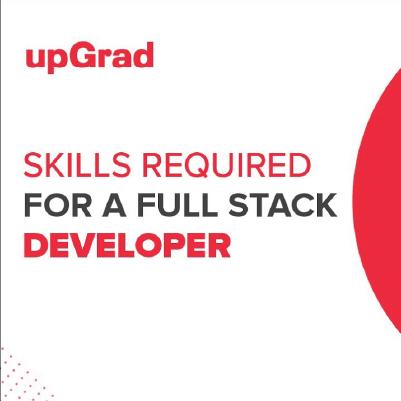

Skills Required to become a Full Stack Developer | upGrad
6:37:00
14,200 views


Web Development Project Ideas | upGrad
11:10:00
70,039 views
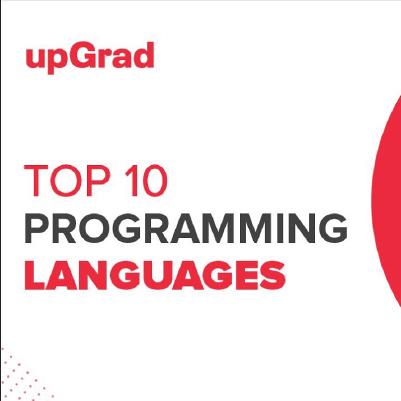

Top 10 Programming Languages | Best Programming Languages to Learn | upGrad
5:46:00
1,592 views
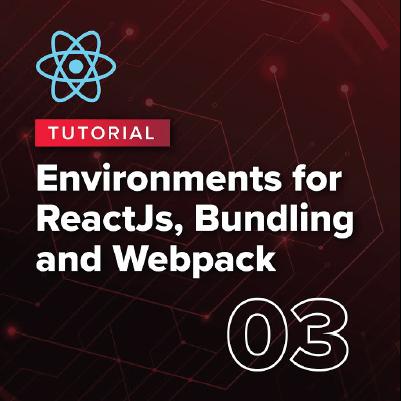

Environments for ReactJs, Bundling and Webpack | React Js Basics | upGrad Technology
5:37:00
234 views
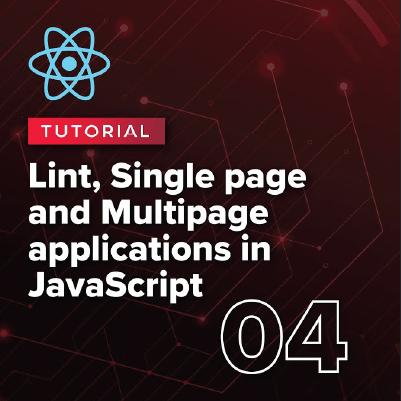

Lint, Single page and Multipage applications in JavaScript | React Js Basics | upGrad Technology
4:20:00
37 views
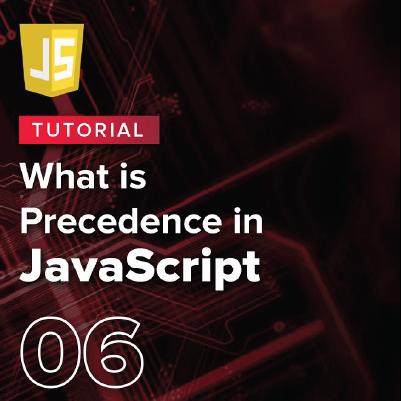

What is Precedence in JavaScript? | JS Tutorial for Beginners 06
5:58:00
78 views
Software Development Blogs
You Might Like To Read
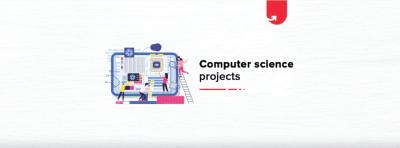
Are you confused about making a computer science project? Check out this article to find top 12 interesting and creative project ideas.

Pavan Vadapalli
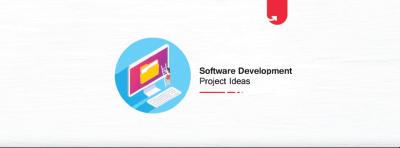
Click here to find some unique and impressive ideas for final year projects that are very useful for those studying computer science and related subjects

Rohan Vats
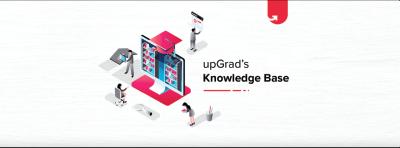
Looking for projects that will help you strengthen your tech career? We have curated a list of the top 10 minor project topics that will help you develop the required skills.

Pavan Vadapalli

Are you looking for suitable engineering projects? Final year students and young professionals can choose from these trending topics to be industry-ready!

Rohit Sharma
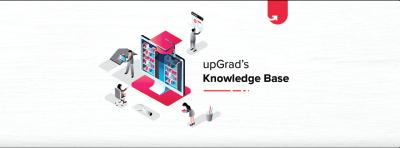
When two classes, modules, or components have low dependencies on each other, it is called loose coupling in Java.

Rohan Vats

Discover top robotics projects and ideas for beginners and intermediates, learn about their learning outcomes, and understand the importance of robotics skills in the job market.

Pavan Vadapalli
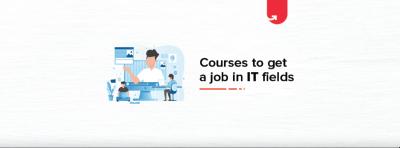
In this post, we're going to discuss the trending technical courses for IT jobs. Technical courses are designed to provide knowledge to aspirants.
_upGrad Dweb-5e9cf18bbadd4ab1bd5c9ae20e34e9a6.svg)
upGrad
Learner Support and Services
How Will upGrad Supports You
Receive unparalleled guidance from industry mentors, teaching assistants, and graders
Receive one-on-one feedback from our seasoned tech faculty on submissions and personalized feedback to improvement
Our Syllabus is designed to provide you with ample of industry relevant knowledge with examples
You can write to us via studentsupport@upgrad.com or for urgent queries use the " Talk to Us" option on the learning platform
We are always there to support our online software course learners on demand.
Timely doubt resolution by industry experts and software course peers
100% expert verified responses to ensure quality learning for all software courses.
Personalized expert feedback on all the online software course assignments and projects
Regular live sessions for our online students by experts to clarify concept-related doubts
Frequently Asked Questions about Blockchain
When the authorization of a transaction happens, all nodes must validate the transaction. When some nodes fail to do that, the BFT comes in to help reach the consensus needed for the transaction to be valid.
Different blockchains work differently despite being built on the same technology - the time in a blockchain refers to the amount of time needed for a block to be created, validated, and added. With its superb efficiency, Ethereum sees new blocks being added every 14 seconds!
The term zk-SNARK stands for zero-knowledge Succinct Non-interactive Argument of Knowledge. But what does this mean and do? This cryptographic system allows private transactions to be validated while maintaining anonymity and not revealing all the details of the transaction that has taken place. This entire process complies with the rules and regulations attributed to that particular blockchain.
While operating blockchain, a soft fork is used to make all existing blocks invalid via required software. On the other hand, a hard fork makes the older blocks invalid. This is important to understand because blockchain contains permanent past and present records and is a dynamic chain.
Familiar with the concept of hash that we talked about? A Merkle tree is nothing but a mathematical structure containing the accumulated data of all the hashes of the blocks in a blockchain and basically sums up all the transactions that have taken place.


upGrad Learner Support
Talk to our experts. We are available 7 days a week, 10 AM to 7 PM
Indian Nationals
Foreign Nationals
Disclaimer
The above statistics depend on various factors and individual results may vary. Past performance is no guarantee of future results.
The student assumes full responsibility for all expenses associated with visas, travel, & related costs. upGrad does not .
























